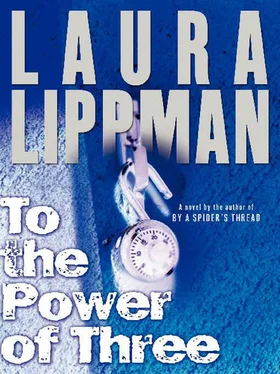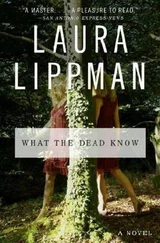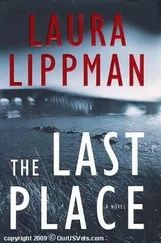“The Snyders are our neighbors, so I know them. What’s your name?”
“Kat Hartigan.”
“As in Thornton?” Kat nodded shyly. People were usually impressed when they learned that fact, but she almost never volunteered it. She was clearly surprised when the man added, “That old crook. He bought all that land on the sly to keep the prices low.”
“What do you care?” the owner asked Mr. Muhly. “You didn’t sell, and now your land is worth three times what it was. Anytime you want to give up your acreage, you’ll have a buyer.”
“And then what would I do with myself? Sit around here like the rest of you? That farm has been in my family for almost two hundred years.”
“I’m just saying you’ve got no beef with him.”
“Well, if he hadn’t started building houses out here, someone else would have, sure enough,” Mr. Muhly said. “But I don’t have to like it.”
The commercial break ended, and the girls started to go, for that was the agreement. But the owner insisted on giving them free Cokes and french fries. He even seated them at the bar, although Perri said later she was pretty sure that was against the law. He seemed to find them amusing, Perri in particular. As the girls prepared to leave, strapping on their bike helmets, he suddenly grabbed Kat’s right arm by the wrist.
“Hit it,” he said, indicating his left thigh.
Kat looked to Josie and Perri, but Josie didn’t know what to tell her, and Perri again was at a loss for words. They were supposed to be on guard against strange people, of course, especially those who made unwelcome touches. But this man had let them take over his bar and fed them. Besides, what could he do to Kat with Josie, Perri, and a roomful of men watching?
“Hit it,” he repeated. “Hard as you can.”
Kat complied, but her punch was clearly too soft to please him. So he struck himself, producing a strange, hollow noise on contact.
“Fake,” he said. “Fake! I lost it in an accident when I wasn’t much older than you, working on my father’s place. A tractor flipped over on me.”
“Eleven-year-olds don’t drive tractors,” Perri said.
“My daughter, Eve, drives a tractor and a truck, and she’s only ten,” Mr. Muhly put in. “And she doesn’t wear a helmet while doing it.”
For the rest of the weekend,Josie lived in apprehension, sure that her parents would find out about the visit to Dubby’s. Then, just as she was beginning to believe they had escaped detection, the three were summoned to the principal’s office on Monday, with Mr. Treff in attendance. Josie assumed they were going to be suspended for going to a bar, and Perri cautioned them to volunteer nothing until they knew what was up.
It turned out that one of the mothers had complained about their “morbid” assignment.
“I know it seems unfair, after all the work you’ve done,” the principal said. “But we really need you to pick another topic. Mr. Treff will give you an extension, to make up for the week you’ve lost. But we just can’t condone such a, uh, ghoulish exercise.”
Josie and Kat hung their heads, ashamed of being ghoulish. But Perri, although her face was quite pink with embarrassment, challenged the principal.
“It’s a perfectly good survey,” she said. “I’m not going to redo it.”
“Then you’ll receive a zero, and it will pull your grade down for the semester.”
“My parents will understand. They’d rather that I get a zero than agree to something that I thought was unfair. There’s a principle involved here.”
“And what would that principle be, Perri? The right to ask people gruesome, disturbing questions?”
The principal clearly thought this point would end the discussion, but Perri shook her head. “That’s part of it. Freedom of speech and all. But the principle is that we were given an assignment and we did it according to the rules outlined, and now you’re changing the rules, saying we have to do it over, to get credit we’ve already earned. That’s not fair.”
“There are limits, Perri. There are always limits.”
“Then Mr. Treff should have made it clear when he gave us the assignment.”
“If Mr. Treff failed to tell you that it was wrong to kill people in the name of an assignment, would you assume you could do that?”
“No, but murder is illegal. We didn’t do anything against the law.”
“Perri, you’re a bright girl, but sometimes you have to accept the rules without arguing. Redo the assignment or get a zero. Those are the choices.”
Kat and Josie redid the poll, asking people in the neighborhood to pick their favorite desserts. They had no intention of going back to Dubby’s, however, so the sample was a little smaller although the answers ultimately more diverse, people having more emphatic ideas about dessert than death, as it turned out. Perri handed in the charts and graphs based on the death survey, refusing Mr. Treff’s attempts to give her extra-credit projects that might have made up the damage done by the zero he was forced to give her. Perri got a C in math that semester. On the Friday after grades came out, her parents took Perri, Kat, and Josie to Perri’s favorite restaurant, Peerce’s Plantation. She liked it because it seemed so grown-up and grand, with its striped awnings and views of the reservoir.
“Is this because you got all A’s except for math?” Josie asked Perri. But it was Dr. Kahn who answered her question.
“This is because she got a C in math-because she stood up for what was right.”
“Were Kat and I wrong to redo it, then?” Josie had gotten a B in math, barely. She hated to think what would happen if she had taken the zero. Kat had gotten her usual A. Only Binnie Snyder did better in math than Kat, and Kat was the best in all the other subjects.
“Not wrong,” Dr. Kahn said. “Practical, under the circumstances. The principal was a bully, and it’s hard to stand up to a bully. And you couldn’t know, sitting in his office that day, how your parents might react if you argued with him.”
Josie did know, however. Her parents would have told her that sometimes you have to do things you don’t think are fair, because that’s the way the world works. And Kat’s father would have said that she had to get A’s now so she would keep getting A’s later. Getting good grades was like anything else, Mr. Hartigan always said. You practiced until it became second nature.
“I didn’t mind doing it over,” Kat said.
“Oh, Kat,” Dr. Kahn said, tugging a lock of her hair. “You never mind anything.”
“I didn’t like hitting that guy’s leg. That was gross.”
“What?”
Josie felt Perri’s leg brush past hers beneath the table, landing a quick and careful kick on Kat’s shin. So Perri’s parents didn’t know about the trip to Dubby’s. Would they have supported that principle? Would they admire Perri for figuring out a way to get around their rules?
“Nothing,” Kat said. “Just something that happened in gym.”
“What were the final results anyway?” Mrs. Kahn asked. “I know I picked a plane crash, but what did others say?”
“Forty-two percent picked drowning. Twenty-eight percent chose plane crash. Then there was twenty-five percent for suffocation and only five percent for fire.”
“Which is funny,” said Dwight Kahn, whose eyes Josie could barely meet, given that he was a high-schooler, six whole years older than they were. “Because most fire victims die from smoke inhalation, not burning.”
“We knew that. We specified being set on fire,” Perri told her brother. “And everyone who picked that was male, between the ages of ten and eighteen.”
Читать дальше












